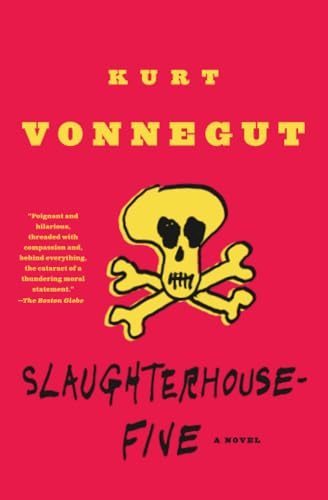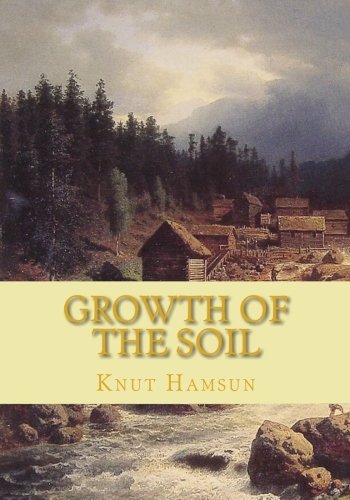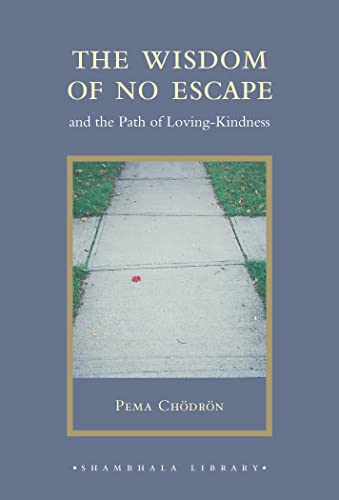My favorite books--mostly fiction
Discover my top favorite fiction books—curated list of must-read novels and captivating stories that I love. Find your next great read here!

Book
My Antonia
by Willa Cather
"My Antonia(1918) depicts the pioneering period of European settlement on the tall-grass prairie of the American midwest, with its beautiful yet terrifying landscape, rich ethnic mix of immigrants and native-born Americans, and communities who share life's joys and sorrows"--- back cover.

Book
Mockingbird
by Walter S. Tevis
Mockingbird is a powerful novel of a future world where humans are dying. Those that survive spend their days in a narcotic bliss or choose a quick suicide rather than slow extinction. Humanity's salvation rests with an android who has no desire to live, and a man and a woman who must discover love, hope, and dreams of a world reborn.

Book
The Dirk Gently Omnibus
by Douglas Adams
Dirk Gently is a detective - well, a sort of detective. There is a long and honourable tradition of great detectives and Dirk Gently does not belong to it. Sherlock Holmes observed that once you have eliminated the impossible, then whatever remains, howev


Book
A Tree Grows in Brooklyn
by Betty Smith
The beloved American classic about a young girl's coming-of-age at the turn of the century, Betty Smith's A Tree Grows in Brooklyn is a poignant and moving tale filled with compassion and cruelty, laughter and heartache, crowded with life and people and incident. The story of young, sensitive, and idealistic Francie Nolan and her bittersweet formative years in the slums of Williamsburg has enchanted and inspired millions of readers for more than sixty years. By turns overwhelming, sublime, heartbreaking, and uplifting, the daily experiences of the unforgettable Nolans are raw with honesty and tenderly threaded with family connectedness -- in a work of literary art that brilliantly captures a unique time and place as well as incredibly rich moments of universal experience.

Book
One Hundred Years of Solitude
by Gabriel Garcia Marquez
One Hundred Years of Solitude tells the story of the rise and fall, birth and death of the mythical town of Macondo through the history of the Buendía family. Inventive, amusing, magnetic, sad, and alive with unforgettable men and women -- brimming with truth, compassion, and a lyrical magic that strikes the soul -- this novel is a masterpiece in the art of fiction.

Book
Fahrenheit 451
by Ray Bradbury
Guy Montag is a fireman, his job is to burn books, which are forbidden.

Book
Catch-22
by Joseph Heller
Catch-22 is like no other novel. It is one of the funniest books ever written, a keystone work in American literature, and even added a new term to the dictionary. At the heart of Catch-22 resides the incomparable, malingering bombardier, Yossarian, a hero endlessly inventive in his schemes to save his skin from the horrible chances of war. His efforts are perfectly understandable because as he furiously scrambles, thousands of people he hasn't even met are trying to kill him. His problem is Colonel Cathcart, who keeps raising the number of missions the men must fly to complete their service. Yet if Yossarian makes any attempts to excuse himself from the perilous missions that he is committed to flying, he is trapped by the Great Loyalty Oath Crusade, the hilariously sinister bureaucratic rule from which the book takes its title: a man is considered insane if he willingly continues to fly dangerous combat missions, but if he makes the necessary formal request to be relieved of such missions, the very act of making the request proves that he is sane and therefore ineligible to be relieved. Catch-22 is a microcosm of the twentieth-century world as it might look to some one dangerously sane -- a masterpiece of our time.

Book
Slaughterhouse-Five
by Kurt Vonnegut
Kurt Vonnegut’s masterpiece, Slaughterhouse-Five is “a desperate, painfully honest attempt to confront the monstrous crimes of the twentieth century” (Time). Selected by the Modern Library as one of the 100 best novels of all time • One of The Atlantic’s Great American Novels of the Past 100 Years Slaughterhouse-Five, an American classic, is one of the world’s great antiwar books. Centering on the infamous World War II firebombing of Dresden, the novel is the result of what Kurt Vonnegut described as a twenty-three-year struggle to write a book about what he had witnessed as an American prisoner of war. It combines historical fiction, science fiction, autobiography, and satire in an account of the life of Billy Pilgrim, a barber’s son turned draftee turned optometrist turned alien abductee. As Vonnegut had, Billy experiences the destruction of Dresden as a POW. Unlike Vonnegut, he experiences time travel, or coming “unstuck in time.” An instant bestseller, Slaughterhouse-Five made Kurt Vonnegut a cult hero in American literature, a reputation that only strengthened over time, despite his being banned and censored by some libraries and schools for content and language. But it was precisely those elements of Vonnegut’s writing—the political edginess, the genre-bending inventiveness, the frank violence, the transgressive wit—that have inspired generations of readers not just to look differently at the world around them but to find the confidence to say something about it. Authors as wide-ranging as Norman Mailer, John Irving, Michael Crichton, Tim O’Brien, Margaret Atwood, Elizabeth Strout, David Sedaris, Jennifer Egan, and J. K. Rowling have all found inspiration in Vonnegut’s words. Jonathan Safran Foer has described Vonnegut as “the kind of writer who made people—young people especially—want to write.” George Saunders has declared Vonnegut to be “the great, urgent, passionate American writer of our century, who offers us . . . a model of the kind of compassionate thinking that might yet save us from ourselves.” More than fifty years after its initial publication at the height of the Vietnam War, Vonnegut’s portrayal of political disillusionment, PTSD, and postwar anxiety feels as relevant, darkly humorous, and profoundly affecting as ever, an enduring beacon through our own era’s uncertainties.

Book
Growth of the Soil
by Knut Hamsun
The story is epic in its magnitude, in its calm, steady progress and unhurrying rhythm, in its vast and intimate humanity. The author looks upon his characters with a great, all-tolerant sympathy, aloof yet kindly, as a god. A more objective work of fiction would be hard to find. Hamsun won the Noble Prize in 1920 for this book.

Book
Giants in the Earth
by Ole Edvart Rolvaag
The classic story of a Norwegian pioneer family's struggles with the land and the elements of the Dakota Territory as they try to make a new life in America.

Book
Angela's Ashes
by Frank McCourt
"A memoir about childhood, relilience, and the trumphant power of storytelling."--From back cover.

Book
The Joy of Living
by Yongey Mingyur Rinpoche
A New York Times Bestseller! An illuminating perspective on the science of meditation—and a handbook for transforming our minds, bodies, and lives In The Joy of Living, world-renowned Buddhist teacher Yongey Mingyur Rinpoche—the “happiest man in the world”—invites us to join him in unlocking the secrets to finding joy and contentment in the everyday. Using the basic meditation practices he provides, we can discover paths through our problems, transforming obstacles into opportunities to recognize the unlimited potential of our own minds.

Book
The Wisdom of No Escape
by Pema Chödrön
An American Buddhist nun encourages accepting everyday life and the wonders and pains of this world as the gateway to an enhanced spiritual life.


Book
The Bonesetter's Daughter
by Amy Tan
““As compelling as Tan’s first bestseller, The Joy Luck Club. . . No one writes about mothers and daughters with more empathy than Amy Tan.” –The Philadelphia Inquirer “[An] absorbing tale of the mother-daughter bond . . . this book sing[s] with emotion and insight.” –People Ruth Young and her widowed mother, LuLing, have always had a tumultuous relationship. Now, before she succumbs to forgetfulness, LuLing gives Ruth some of her writings, which reveal a side of LuLing that Ruth has never known. . . . In a remote mountain village where ghosts and tradition rule, LuLing grows up in the care of her mute Precious Auntie as the family endures a curse laid upon a relative known as the bonesetter. When headstrong LuLing rejects the marriage proposal of the coffinmaker, a shocking series of events are set in motion–all of which lead back to Ruth and LuLing in modern San Francisco. The truth that Ruth learns from her mother’s past will forever change her perception of family, love, and forgiveness. “A strong novel, filled with idiosyncratic, sympathetic characters; haunting images; historical complexity; significant contemporary themes; and suspenseful mystery.” –Los Angeles Times “For Tan, the true keeper of memory is language, and so the novel is layered with stories that have been written down–by mothers for their daughters, passing along secrets that cannot be said out loud but must not be forgotten.” –The New York Times Book Review “Tan at her best . . . rich and hauntingly forlorn . . . The writing is so exacting and unique in its detail.” –San Francisco Chronicle

Book
Galapagos
by Kurt Vonnegut
“A madcap genealogical adventure . . . Vonnegut is a postmodern Mark Twain.”—The New York Times Book Review Galápagos takes the reader back one million years, to A.D. 1986. A simple vacation cruise suddenly becomes an evolutionary journey. Thanks to an apocalypse, a small group of survivors stranded on the Galápagos Islands are about to become the progenitors of a brave, new, and totally different human race. In this inimitable novel, America’ s master satirist looks at our world and shows us all that is sadly, madly awry–and all that is worth saving. Praise for Galápagos “The best Vonnegut novel yet!”—John Irving “Beautiful . . . provocative, arresting reading.”—USA Today “A satire in the classic tradition . . . a dark vision, a heartfelt warning.”—The Detroit Free Press “Interesting, engaging, sad and yet very funny . . . Vonnegut is still in top form. If he has no prescription for alleviating the pain of the human condition, at least he is a first-rate diagnostician.”—Susan Isaacs, Newsday “Dark . . . original and funny.”—People “A triumph of style, originality and warped yet consistent logic . . . a condensation, an evolution of Vonnegut’s entire career, including all the issues and questions he has pursued relentlessly for four decades.”—The Philadelphia Inquirer “Wild details, wry humor, outrageous characters . . . Galápagos is a comic lament, a sadly ironic vison.”—St. Louis Post-Dispatch “A work of high comedy, sadness and imagination.”—The Denver Post “Wacky wit and irreverent imagination . . . and the full range of technical innovations have made [Vonnegut] America’s preeminent experimental novelist.”—The Minneapolis Star and Tribune

Book
The Source
by James A. Michener
In his signature style of grand storytelling, James A. Michener transports us back thousands of years to the Holy Land. Through the discoveries of modern archaeologists excavating the site of Tell Makor, Michener vividly re-creates life in an ancient city and traces the profound history of the Jewish people—from the persecution of the early Hebrews, the rise of Christianity, and the Crusades to the founding of Israel and the modern conflict in the Middle East. An epic tale of love, strength, and faith, The Source is a richly written saga that encompasses the history of Western civilization and the great religious and cultural ideas that have shaped our world. Praise for The Source “Fascinating . . . stunning . . . [a] wonderful rampage through history . . . Biblical history, as seen through the eyes of a professor who is puzzled, appalled, delighted, enriched and impoverished by the spectacle of a land where all men are archeologists.”—The New York Times “A sweeping [novel] filled with excitement—pagan ritual, the clash of armies, ancient and modern: the evolving drama of man’s faith.”—The Philadelphia Inquirer “Magnificent . . . a superlative piece of writing both in scope and technique . . . one of the great books of this generation.”—San Francisco Call Bulletin